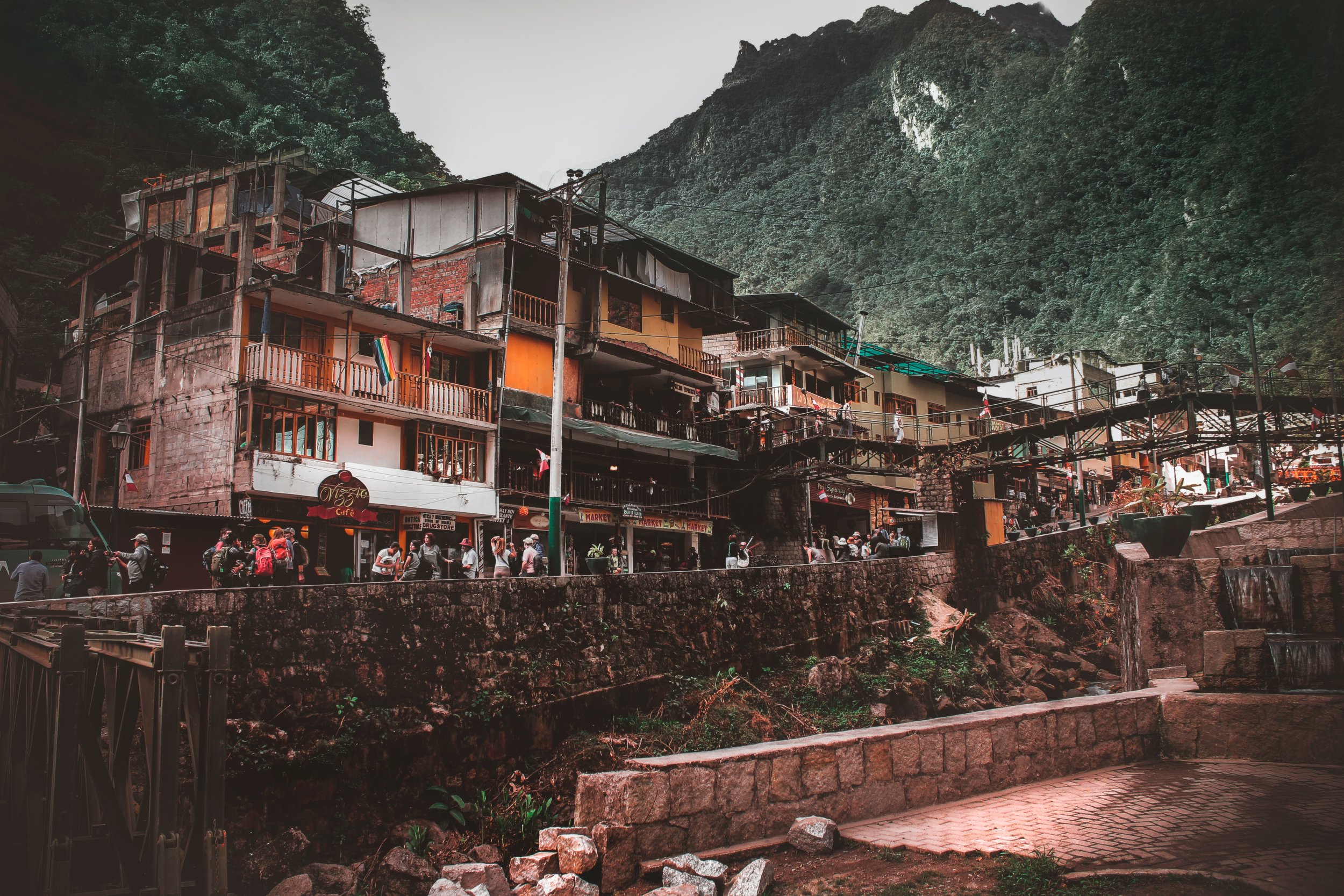
Just Transition
Pictured: Aguascalientes, Peru, near the base of Machu Picchu.
Transformative climate action must be inclusive and pay attention to the regions, industries and workers who will face the greatest challenges. Including culture, heritage, creative industries, and craft, in just transition measures will help assure community-led processes, wider acceptance of change, and reskilling and with durable and more effective outcomes.
Just transition planning should recognise the historic, carbon economy contributions of affected regions, communities, groups, and sectors. Memorialising these contributions to the Anthropocene can also facilitate moving beyond them by transition to a post-carbon economy. Cultural heritage can support this outcome by documenting, valuing, and celebrating carbon-heritage in ways that support the pride of local communities and tangible and intangible traditions, for example through community archiving.
Just transition strategies must also take into account both historical harms and the hyper globalised context in which they operate. Actors in the arts, culture and heritage sectors can reinforce the importance of understanding the international stakes of local climate challenges and the importance of addressing conditions in marginalised communities. Just transition for communities heavily dependent on GHG-intensive forms of cultural tourism is an overlooked area in need of attention.
Climate Heritage Policy Priorities: Incorporate the potentials offered by cultural heritage and the creative industries into work of the Katowice Committee of Experts on the Impacts of the Implementation of Response Measures and other mechanisms. Promote culture, heritage, and education as vectors for the upskilling of workers, citizens and future generations.
